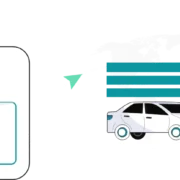Signal decoder software is essential for anyone involved in the field of signal processing, whether for professional or personal use. These tools help decode complex signals into understandable formats, facilitating better communication and analysis. This article explores signal decoder software, its applications, and tips for selecting the best tool for your needs.
What is Signal Decoder Software?
Signal decoder software is designed to translate and interpret signal data from various sources, including radio, telecommunications, and satellite communications. It converts raw signal data into a format that can be easily understood and analyzed.
The Decoding Process
The decoding process involves several steps, including demodulation, filtering, and data extraction. The software applies algorithms to process the signal data, removing noise and extracting meaningful information.
Applications of Signal Decoder Software
In telecommunications, signal decoder software is used to manage and analyze communication signals. It plays a crucial role in ensuring the efficiency and reliability of communication systems.
Analyzing Network Traffic
Signal decoder software helps in analyzing network traffic by decoding various signal types. This analysis assists in identifying network issues, optimizing performance, and ensuring smooth communication.
Monitoring and Maintenance
Regular monitoring and maintenance of communication systems are essential for optimal performance. Signal decoder software enables technicians to monitor signals and perform necessary maintenance tasks to prevent disruptions.
Radio and Amateur Radio Applications
Amateur radio operators and enthusiasts utilize signal decoder software to decode signals from different radio frequencies. This includes decoding digital modes and satellite signals.
Decoding Digital Communication Modes
Signal decoder software is crucial for decoding digital communication modes such as FT8, PSK31, and RTTY. These modes are popular among radio enthusiasts for their efficiency and reliability in digital communication.
Satellite Communication
For those interested in satellite communications, signal decoder software provides the tools needed to decode and analyze satellite signals. This includes receiving data, images, and telemetry from satellites.
Choosing the Best Signal Decoder Software
When selecting signal decoder software, consider features that align with your specific needs. Here are some important features to look for:
Signal Type Support
Ensure the software supports the types of signals you need to decode. Different software programs are designed for various signal types, so choose one that matches your requirements.
User Interface and Usability
A user-friendly interface can significantly enhance your experience with the software. Look for software that offers an intuitive interface and easy-to-navigate features.
Recommended Signal Decoder Software
Several signal decoder software options are available, each offering unique features and capabilities. Here are some recommendations:
MATLAB with Communications Toolbox
MATLAB, coupled with the Communications Toolbox, provides advanced signal processing capabilities. It is widely used for research and professional applications due to its comprehensive analysis tools.
GQRX
GQRX is an open-source software defined radio receiver that allows users to decode a wide range of signals. It is compatible with various SDR hardware and provides a versatile platform for signal analysis.
MultiPSK
MultiPSK is a multi-mode decoder that supports numerous digital modes. It is popular among amateur radio operators for its versatility and ability to decode a wide range of signals.
Getting Started with Signal Decoder Software
Installing signal decoder software typically involves downloading the software from a trusted source, following the installation instructions, and configuring the settings according to your needs.
Configuration and Calibration
Configure the software to match your signal types and hardware setup. Calibration may be required to ensure accurate signal decoding. Refer to the software’s documentation for detailed setup instructions.
Practical Tips for Using Signal Decoder Software
To make the most of your signal decoder software, consider the following tips:
Experiment with Features
Explore the software’s features and settings to familiarize yourself with its capabilities. Experiment with different configurations to find the optimal setup for your needs.
Stay Updated
Regularly check for software updates and improvements. Keeping your software up to date ensures you have access to the latest features and bug fixes.
Conclusion
Signal decoder software is a vital tool for decoding and analyzing signals in various fields, including telecommunications, radio, and satellite communications. By understanding its applications, key features, and popular options, you can choose the right software to meet your needs and enhance your signal decoding capabilities. Embrace the power of signal decoder software to improve your communication systems and achieve better results in your signal analysis endeavors.
























Comments